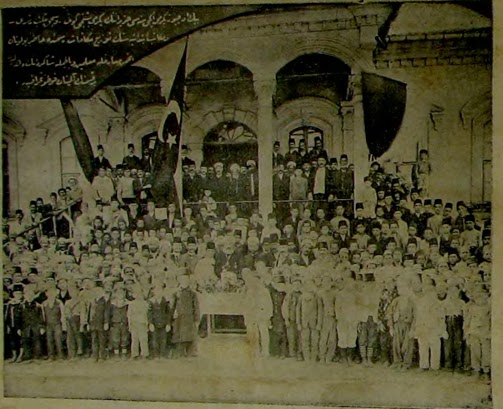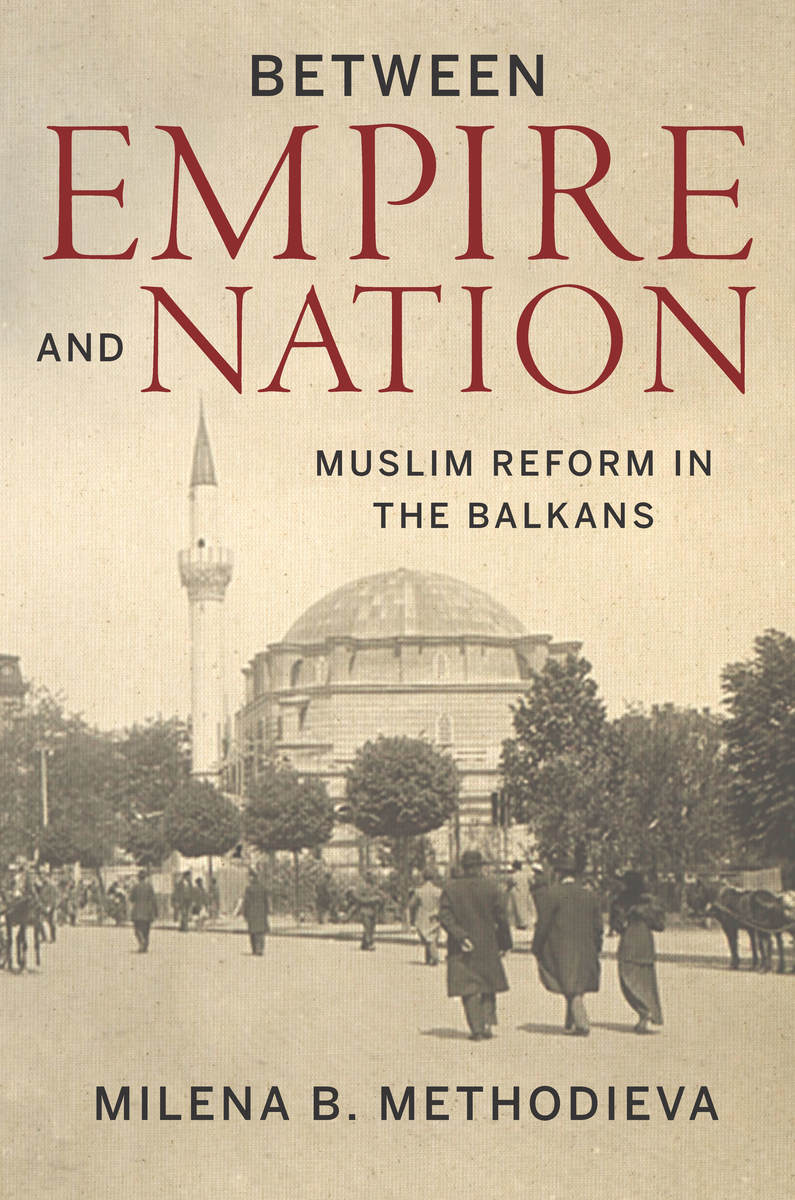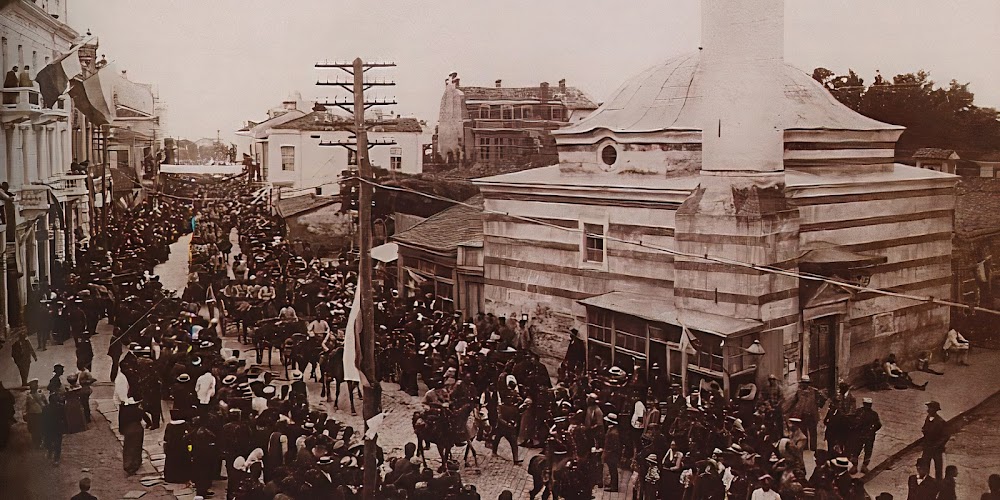Bulgarian Muslims between Empire and Nation
Episode 518
hosted by Andreas Guidi and Jovo Miladinović
In 1878, following the Congress of Berlin, Bulgaria became a de facto independent principality. Not anymore under Ottoman rule, the Muslims of Bulgaria navigated this political shift by redefining their place as a minority of a nation-state. The community underwent a political polarization between traditional notables and a group pushing for reforms within Muslim institutions. In this episode, we discuss how these reformists engaged with state and nation-building in Bulgaria by highlighting their connections with the broader Muslim world. Not only did Bulgarian Muslims contribute to the rise of the Young Turk movement, they were also part of a transnational space in which intellectuals and activists debated issues such as the place of Islam in modern society, the value of education, and the question of political relationship with non-Muslim rulers.
This episode is cross-listed with The Southeast Passage.
 | Click for RSS Feed | 
|

|
Contributor Bios
 |
Milena Methodieva is a scholar of Ottoman, Balkan, and Turkish history. She is Assistant Professor at the Department of Near and Middle Eastern Civilizations at the University of Toronto, Canada. Her scholarship focuses on the political, social, and intellectual transformations in the late Ottoman empire, its successors in the Balkans, and modern Turkey. In her new research project, she focuses on migration to explore the unraveling of the Ottoman imperial world and the emergence of nation-states in the Balkans and modern Turkey. |

|
Andreas Guidi is Lecturer of Modern and Contemporary History at the University of Konstanz, Germany. After his joint Ph.D. at the Humboldt University in Berlin and the École des Hautes Études en Sciences Sociales in Paris, he is preparing a monograph tentatively entitled “Youth between Empires: Generations, Fascist Colonialism, and the post-Ottoman Mediterranean in Rhodes”. His post-doc project investigates how smugglers and illegal trade contributed to constructing a transnational modern Mediterranean. |

|
Jovo Miladinović is an academic staff member at University of Konstanz. His research explores the history of Balkan and Mediterannean borderlands during the 19th and 20th century. |
Further Listening
 |
Dimitris Stamatopoulos | 156
5/24/14
|
Balkan Historiographies and the Legacies of Empire |
 |
Nathalie Clayer | 268
9/9/16
|
Religious Pluralism in the Late Ottoman Balkans |
 |
Kelly O'Neill | 304
3/8/17
|
Crimea and the Russian Empire |
 |
Leyla Amzi-Erdoğdular | 198
8/27/15
|
Late Ottoman Bosnia and the Imperial Afterlife |
 |
Kalliopi Amygdalou | 337
11/23/17
|
Izmir & Thessaloniki: from Empire to Nation-State |
Credits
Episode No. 518
Release Date: 24 January 2022
Recording Location: Toronto / Berlin
Audio editing by Andreas Guidi and Jovo Miladinović
Music: The Southeast Passage Theme, by Giulio Stermieri; Eridi Kalmadı Dağların Karı, performed by Seval Eroğlu; Kanun Taksimi
Release Date: 24 January 2022
Recording Location: Toronto / Berlin
Audio editing by Andreas Guidi and Jovo Miladinović
Music: The Southeast Passage Theme, by Giulio Stermieri; Eridi Kalmadı Dağların Karı, performed by Seval Eroğlu; Kanun Taksimi
Images and bibliography courtesy of Milena Methodieva
Images

The Muslim education board with students and teachers from the rüşdiye and the Hacı Mehmed primary school in Russe, Source: Uhuvvet 117, 9 August 1906. Courtesy of Hakkı Tarık Us Library, Istanbul

The Aladja Mosque in Plovdiv, early 20th century (Wikimedia Commons)
Select Bibliography

Nikolay Antov, The Ottoman “Wild West:” the Balkan Frontier in the Fifteenth and Sixteenth Centuries (New York: Cambridge University Press, 2017).
Ebru Boyar, Ottomans, Turks and the Balkans: Empire Lost, Relations Altered (London: I. B. Tauris, 2007).
Ali Eminov, Turkish and Other Muslim Minorities in Bulgaria (London: Hurst, 1997).
Nevena Gramatikova, Neortodoksalniat isliam v bǔlgarskite zemi. Minalo i sǔvremennost (Sofia: IK Gutenberg, 2011).
M. Şükrü Hanioğlu, The Young Turks in Opposition (New York: Oxford University Press, 1995).
M. Şükrü Hanioğlu, Preparation for a Revolution: the Young Turks, 1902-1908 (New York: Oxford University Press, 2001).
Kemal Karpat, Ed., The Turks of Bulgaria: The History and Political Fate of a Minority (Istanbul: Isis Press, 1990).
Osman Keskioğlu, Bulgaristan’da Türkler: Tarih ve Kültür (Ankara: Kültür ve Turizm Yayınları, 1985).
Bernard Lory, Les Balkans: de la transition post-ottomane à la transition post-communiste (Istanbul: Isis, 2005).
Justin McCarthy, Death and Exile: the Ethnic Cleansing of Ottoman Muslims, 1821-1922 (Princeton: Darwin Press, 1995).
Milena Methodieva, “How Turks and Bulgarians Became Ethnic Brothers: History, Propaganda and Political Alliances on the Eve of the Young Turk Revolution,” Turkish Historical Review 5 (2014), 221-262.
Anna Mirkova, Muslim Land, Christian Labor: Transforming Ottoman Imperial Subjects into Bulgarian National Citizens, 1878-1939 (Budapest: Central European University Press, 2017).
Mary Neuburger, The Orient Within: Muslim Minorities and the Negotiation of Nationhood in Modern Bulgaria (Ithaca: Cornell University Press, 2004).
Alexandre Toumarkine, Les Migrations des populations musulmanes balkaniques en Anatolie (1876-1913) (Istanbul : Isis, 1995).
Zhorzheta Nazǔrska, Bǔlgarskata dǔrzhava i neinite maltsinstva, 1879-1885 (Sofia: Lik, 1999).
Erik J. Zürcher, “The Young Turks – Children of the Borderlands?” International Journal of Turkish Studies 9: 1-2 (2003), 257-86.











Comments
Post a Comment
Due to an overwhelming amount of spam, we no longer read comments submitted to the blog.